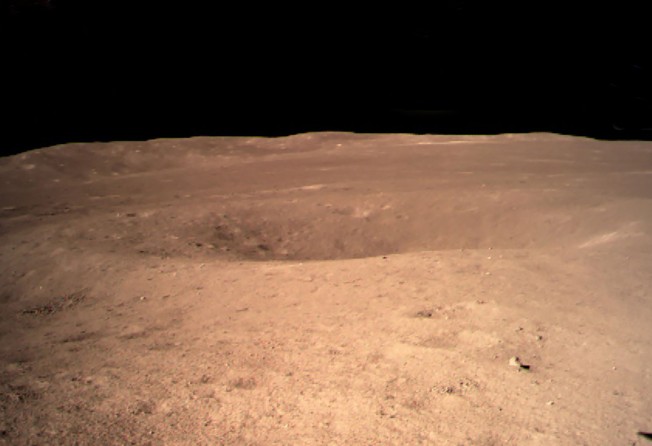China can be proud as Chang’e 4 lands on far side of the moon
- Lunar landing is far from being a vanity project, and humankind will benefit from the experience gained, experiments carried out and cooperation with other countries

China has gained further pride and prestige for becoming the first nation to land a spacecraft on the uncharted far side of the moon. The Chang’e 4 mission adds to an impressive list of achievements proving Chinese scientific and technological prowess. But it is not a mere vanity project or show of might. Through the experience gained, experiments carried out and cooperation with other countries, there will be benefits for all of humankind.
Chang’e 4 has no specific goals, exploring the unknown being about making discoveries and whatever is revealed will be new and interesting to scientists. The moon’s far side cannot be seen from Earth and was all but ignored by the leading space powers, the United States and Russia, during their earlier missions. It is known to have a markedly different geology to that of the near side and, through the use of a specially launched Chinese satellite for communications, it is hoped there will be much insight from the two cameras on board the robotic craft, a German radiation experiment and a spectrometer that will carry out radio astronomy observations. Vital experience will also be gained for two planned future Chang’e trips to gather samples and eventually, a manned mission.
Such achievements may not seem impressive given that the Americans have made numerous moon landings, the first of six manned ones being 50 years ago this July. But it was only 15 years ago that Yang Liwei became the first Chinese in space and, since then, powerful rockets have been developed, missions have perfected space flight and put laboratories into orbit, a permanent station is being built and sights are firmly set on the lunar surface. There is good reason for the latter; much is still to be learned and the other space powers have turned their focus elsewhere. China’s successes since its first lunar rover in 2013 have spurred renewed interest, and Israel and India plan missions this year. Russia seeks a return early next decade and the US has visions of a lunar-orbiting space station.
There is good reason for such interest – the moon offers many advantages. Lunar missions enable the testing of new methods and materials that will improve skills, technology and communications. Better knowledge of Earth’s nearest neighbour will improve understanding of our origin and evolution. There are also abundant mineral and energy resources, and rare earths such as titanium and uranium. The lack of air means solar panels operate far more efficiently, and the gas helium-3 is a possible fuel for nuclear fusion.
The high cost of missions and expertise necessary means China cannot work alone. Chang’e 4 partners include Germany, the Netherlands, Saudi Arabia and Sweden. Chinese can be proud, but all people will benefit.